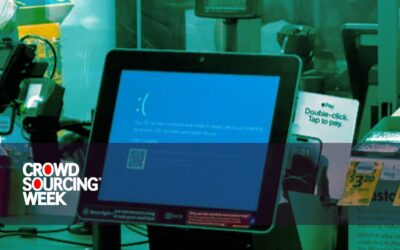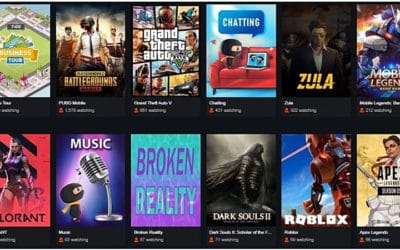Check out our curated Weekly Roundup of the breaking news and must-read thought leadership pieces on the crowd economy spotted by the Crowdsourcing Week team.
How crowdsourcing is shaping Aviation industries
Aviation industries such as Airbus, AirAsia, Wi-Fly and Miflight are using crowdsouring to affect decision-making and improve the passanger experience. Read more here.
Company commitment to consumer engagement once meant soliciting retroactive feedback on products and services whose logistics would likely never change without “expert” decree. However, with increased connectivity comes the proliferation of voices. A brand’s interaction with its consumers has expanded beyond the customer support line; companies are closer than ever to their stakeholders, and they are using this proximity to their advantage. This 21st century mode of operation – crowdsourcing, collaboration and co-creation – has challenged the aviation industry to rethink its conventional processes.
Crowdsourcing for Fashion
Different fashion brands are tapping crowdsourcing to seek new clothes ideas or funding online. More details in this article.
J. Peterman, the ‘90s fashion retailer made famous by “Seinfeld,” is back and acting very 2016. The company has turned to Kickstarter to raise $500,000 and is asking consumers for their design ideas as well. Crowdfunding for fashion, where people place orders before an item is produced, and crowdsourcing, where the public weighs in on a product’s design, were initially explored by startup companies. These days, they are among the many experiments established fashion brands are trying to design, deliver and pay for products.
Moog turns to crowdsourcing for a ‘Global Synthesizer Project’
Moog has announced his new project called the ‘Global Synthesizer Project‘ which will allow users to create compositions using crowdsourced field recordings.
Veteran synthesizer manufacturer, Moog, has announced an ambitious, experimental new undertaking in collaboration with London-based sound artistYuri Suzuki called the Global Synthesizer Project. The goal is to create a tool that will allow users to create compositions using field recordings from around the world, wiring them together in networks resembling those of a modular synthesizer.
How crowdsourcing is used to define the relationship between biodiversity and wellbeing
NatureBuzz will crowdsource data to help scientists understand the relationship between outdoors and wellbeing.
The app, developed at the University of Cambridge, maps happiness onto a detailed map that includes all the UK’s nature reserves and green spaces. NatureBuzz, which is available to download free on iOS and Android platforms, asks participants three times per day to answer questions about how they feel, whether they are outside or indoors, who they are with, and what they are doing. At the same time, it records their location using GPS data. NatureBuzz also provides information about UK nature reserves and ‘protected areas’ and will provide users with feedback on how their happiness has fluctuated, where it was highest, with whom and during which activities.
Start-up bank, Tandem, has reached the million dollar mark by crowdfunding
British start-up bank, Tandem, has raised almost $1.46 million through crowdfunding in attempt to launch later this year.
Tandem has previously raised “tens of millions of pounds”, according to founder Ricky Knox, but has never disclosed the actual figure. Pierre Omidyar, the founder of auction site eBay is among the investors. The crowdfunding round is part of the company’s “co-founders” program, allowing people to own shares in the bank. Earlier this month, Tandem handed out free shares to people, worth about 5 percent of the business, in return for them offering advice and product feedback.
Crowdfunding in Belarus
This story shares the importance of crowdfunding in the past two years in Belarus.
Crowdfunding in Belarus experienced a spectacular surge in 2015, with the trend continuing in 2016. Leading Belarusian crowdfunding platforms Talakosht, MaeSens, and Ulej became increasingly effective in supporting cultural and social projects, charities, and socially responsible businesses. These initiatives are important not only because they encourage grassroots civil activism, but also because they allow more fundraising opportunities. The government of Belarus still severely restricts obtaining funding from abroad. However, crowdfunding has a limited potential as a major source of funding due to the small amounts of donations.
Crowdsourcing in the Entertainment Industry
Check out this Forbes article sharing details about the linkage of crowdsourcing and the Entertainment Industry.
Tour-crowdsourcing startups differ from traditional crowdfunding platforms in how they give more decision-making power to fans. Although users on websites like Kickstarter can contribute flexible amounts to a project in exchange for tiered perks, the project owners themselves ultimately decide how the money is allocated.Crowdsourcing platforms provide value through secondary market exposure, revealing substantial audiences in unsuspecting cities that otherwise would not get on an artist’s or agent’s radar. They help venues place a higher guarantee on attendance for shows—particularly in secondary markets and, if strategically planned, on weekdays and other off-peak nights. The platforms are perhaps most effective for the emerging generation of content creators who know how to interact closely with their fans through digital media.
Image credit: apex.aero
There are many fantastic stories out there. What else caught your eye this week? Did you come across some breaking news or a good thought piece? Do share them with us…




0 Comments